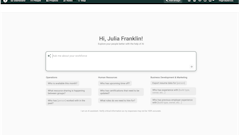Budgeting isn't fun - or at least I used to think it wasn't fun. I'm not a numbers geek. I never have been. I like to spend money but I don't like to spend time managing it. So how in the world did I learn to create and stick to a budget? It wasn't easy. And I did not sign up willingly. I was forced to begin budgeting. I was forced to take a good hard look at our company's finances because we went through some very hard times. Creating and sticking to a budget became an absolute necessity a few years ago. It was tough, but not as painful as I thought it would be. And if I can do it, anyone can!
12 Steps to Create and Stick to a Budget:
Decide. You can read about budgeting, ask others for help and actually play around with creating one. Yet until you actually decide to do it, it will never be part of your business. Making a decision to start a budget is the first step.
Make it a priority. In addition to deciding, you must make creating a budget an absolute priority. In the beginning of our business - we just spent money and hoped enough would come in to cover it. We knew we had money in the account but we had no idea how it would all work out. It was a stressful place to be and yet until we made our budget a priority, it was always pushed to the back burner due to other things taking priority.
Schedule time. In order for a budget to work, you must schedule time to work on it each week. In the beginning you will need more time. It takes a while to get the budget right and to actually have it running smoothly. After a few months, you will need less time.
Be patient. Getting the hang of a budget and actually making one work takes time. Be patient with yourself and others in your company. If you have not had a budget up until this point, be patient. It will take time to get it right.
Revisit often. Revisit your budget on a regular basis and whenever anything changes. In the beginning it is important to review your budget more often. And as you feel comfortable and begin seeing the results of a budget, you can revisit it less often.
Take a class. Learn how to read your financial statements, create a budget or any number of other financial functions. Learning how to do all the necessary financial functions of a business is important even if you have hired someone to do the actual work. It is had to oversee the people we hire, if we do not know what they should be doing or how they should be doing it.
Get a mentor. The best way to stick to your budget is by having a mentor. Accountability works. Choose a mentor who is wise with finances and let them teach you and most importantly hold you accountable to your budget. We often overspend because we have no one to answer to. Being accountable to a group or an individual is key to staying on track.
Set up an "oops" account. This is an account for the times when you just want to blow the budget. If you create and fund an "oops" account, you set money aside for the times you just need to spend money or for the things you forgot to put in the budget.
Budgeting can be a hard habit to develop. It takes time and practice to get it right. But it's one area that is guaranteed to bring results in your business. Creating and sticking to a budget will increase your bottom line. By controlling where your money goes, you will have more money, flexibility in your business and much less stress.
Michelle Neujahr is a business consultant, national speaker and author. Michelle currently works with businesses who want to develop excellent business practices. Prior to beginning Neujahr Development Company, she owed a large construction firm, specializing in both residential and commercial construction. She can be reached at [email protected] or via her website at www.michelleneujahr.com.



















